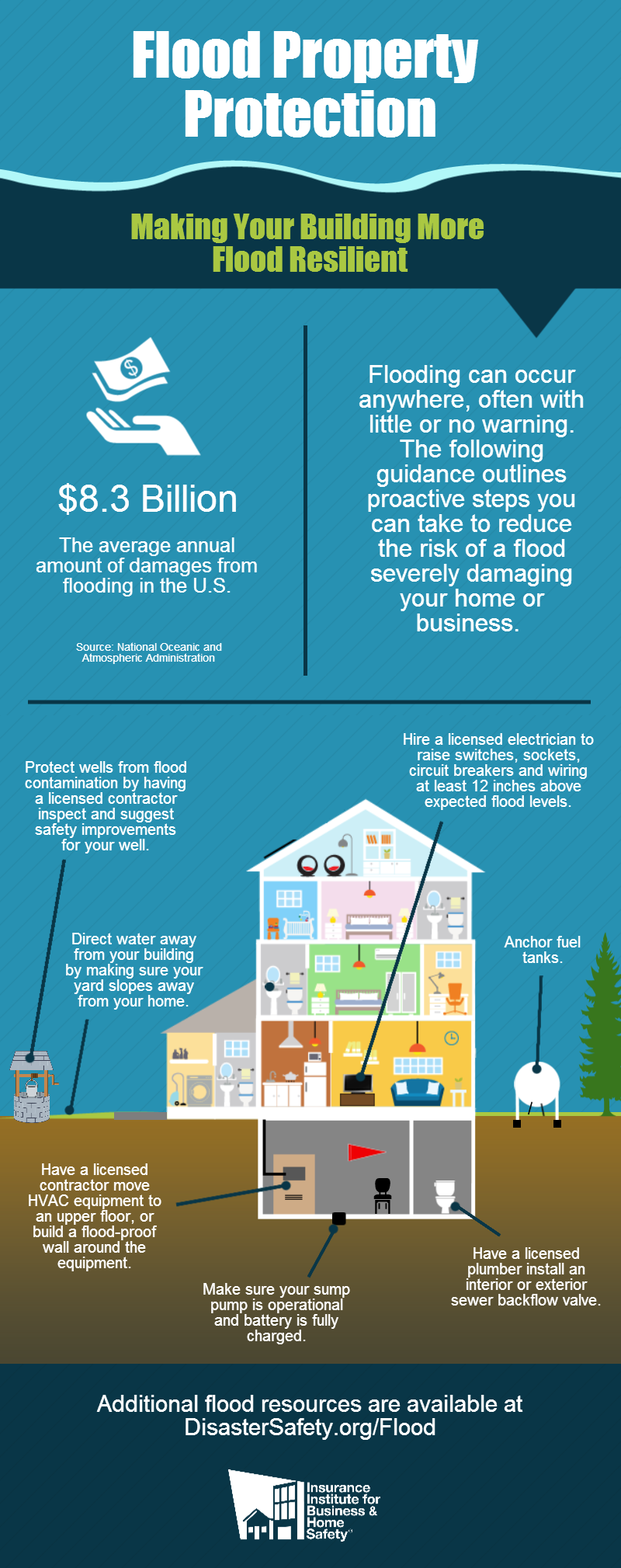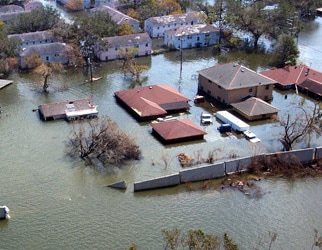|
Car insurance is a necessary expense for many people, and there are a variety of ways to save on this household cost once you know what it takes. To get started, gather your personal information, determine your budget and then consider the insurance coverage that you think will best safeguard you and your lifestyle. Here are 10 ways to save on your car insurance: 1. Gather Specifics About Your Car and Its Primary Drivers One way to begin the process of shopping for car insurance to get the most value for your money is to gather all of the information an insurance carrier needs to offer you the best possible rate.1 Start by compiling this basic information before you shop for quotes:
With this information, an insurance carrier can suggest the best coverage and rates for you and your lifestyle. 2. Research How Much Car Insurance Costs Before You Buy or Lease When you buy or lease a car, it can be tempting to get a brand-new car or trade in your practical family vehicle for a sports car. Just keep in mind that the type of car you drive may impact your insurance coverage and rate. Be sure to check the cost of insurance before you finalize your car purchase or lease. Insurance rates may vary widely depending on the type of car, repair costs, safety record and many other subjective points. 3. Research All Car Insurance Coverage Requirements Each state has specific requirements for car insurance coverage.3 Coverage may become more complicated when a financial institution owns the vehicle you drive, so if you’re taking out a loan to make the car purchase, keep in mind that the lender may require you to have specific insurance that might otherwise be optional. One example is collision insurance that pays for the repairs of damage to your car sustained during an accident. Another example is comprehensive coverage, which typically covers the loss of the car for theft, fire and other damage due to non-accidents. Find out what coverage you need and the cost before you buy or lease. 4. Decide What Additional Coverage You Need It may seem counter-intuitive but buying additional car insurance coverage may save you money. Weighing the options for additional coverage will help you to ensure you are well protected. Consider how your finances might be impacted if you're involved in an accident, and the injuries or damages exceed the amount covered by insurance. You purchase car insurance to help protect against the potential costs of a theft or accident, so be sure to talk to your insurance agent or carrier for professional guidance on the appropriate level of coverage for you. In addition, there are other coverage options that may save you money. What if your financed car is totaled? Can you afford to pay the entire loan? In this case, you may want to consider GAP insurance, which covers the difference between what your vehicle is currently worth, which is what your standard insurance typically will pay, and the amount you owe on it. Again, your insurance agent or carrier can help guide you through the available options. 5. Save Money with Accident Forgiveness Having a clean driving record is one thing that typically can help you to qualify for lower premiums. But there are times when even a good driver can have an accident. You may want to consider looking into potential savings through Accident Forgiveness and Minor Violation Forgiveness, if available in your state. These optional features can help you avoid a premium increase following your first covered accident or minor violation. There are also other features that can help provide peace of mind, such as Decreasing Deductible and a Total Loss Deductible Waiver. Ask your insurance agent about these plans, if you fit the bill as being a responsible driver because of your good driving record. Some carriers – in select states – also offer a program that uses smartphone technology to capture and score driving behavior of drivers covered on your policy, which could result in savings both in your first term and at renewal. It’s another option to explore when you’re a good driver and looking to save on your car insurance. 6. Determine What Car Insurance You May Not Need If you own an older car and are looking to trim your expenses, you may consider dropping collision and comprehensive coverage. You’ll want to consider how much your older car is worth when you consider the cost of your premium including collision and comprehensive coverage. Be sure to also consider your individual driving situation to base your cost-cutting efforts on all the factors that could help you determine if this is a wise choice for you. With an older car, you may be paying premiums that total more than your car's value. Typically, if your car is worth less than 10 times the insurance premium, it may not be cost effective to keep that part of your coverage. 7. Life Cycle Events Can Save Car Insurance Costs is the one ne thing you can count on is that life will sometimes bring changes in your lifestyle and circumstances, so it’s smart to consider how these changes may or could affect your car insurance costs. For example, did your child go away to school? Perhaps there’s a Student Away at School discount you can explore. Did you buy a home? Maybe you can explore a Multi-Policy Discount and get the benefit of bundling your policies. These are some of the events that may help lower your car insurance rate. It’s a good idea to notify your car insurance agent when you have a major life event such as these, to have a conversation to ensure you’ve got the best coverage for your current life needs. 8. Choose the Deductible That Is Right for You Your car insurance deductible is the amount you’ll pay out of pocket before your insurance kicks in. The lower the deductible, the less you’ll pay out of pocket if an accident occurs. Selecting a higher deductible may lower your car insurance premiums. For example, if you choose a $1,000 deductible and have an accident causing $2,000 in damage, you would pay the first $1,000 of a covered loss before insurance kicks in. 9. Compare Car Insurance Companies and Costs With many things we buy nowadays there are choices. Many of us wouldn't think of buying a product or service without comparing prices, the value you get for your money, and the reputation of the provider. You may want to consider using the same philosophy when you purchase car insurance. Do your homework and then talk to your insurance agent or carrier about what your needs are. 10. Ask Your Agent About Available Discounts It’s a good practice to check in with your insurance agent at least annually to find out if you are eligible for a better car insurance rate. You may receive discounts if you bundle coverage, such as buying insurance for your home and car from the same company. As mentioned earlier, safe driving records and extra safety features on a car may also lower rates. Ask your insurance agent about any new offerings or gaps in your coverage to determine the best coverage for you. Now that you’ve got some ideas on how to save on your car insurance, you may want to check with your carrier to review your coverage.
0 Comments
.Basement flooding is one of the most stressful, yet prevalent issues homeowners face on a yearly basis. Flood damage is not only difficult and timely to remove, but it can also ruin Super Bowl parties or lifelong memories for you and your family. Nonetheless, like almost any home issue, there are certain precautions homeowners can take to ensure no water comes anywhere near the basement. Below are our five tips to avoid a flooded basement.
Keep Gutters Free of Debris The best way to prevent basement flooding is by keeping your gutters free of debris. Preventing water from leaving your premises is never helpful. Your gutters were put in for a reason and driving water away from the home is its No. 1 function. If leaves or branches get caught in your gutters, water could start to pile up and leak right around your foundation. The more water near the foundation, the more likely your basement is going to flood. Cleaning your gutters is easy and should be done every spring and fall. See our step-by-step guide for cleaning your gutters here. Make Sure There are No Cracks in the Foundation Even if your home has no history of flood damage, it is vital that you seal cracks in the foundation walls and basement floors. I don’t need to explain that if there are holes in the foundation, water will get into the basement. There is no way around it. Many sealing solutions are DIY projects, but some require professional installation. Start by removing any crumbling concrete and repair all cracks in the walls and floors. Use masonry caulk on cracks less than 1/8 inches wide. Caulk only costs about $10 per tube. Patch wider cracks with epoxy filler and a putty knife. Remember to patch the places where pipes and tie rods pass through the concrete. Drylok Fast Plug is effective for sealing cracks in masonry. For complex cracks or those subjected to movement, hire a professional, as DIY kits are less reliable for this level of damage. To see what it cost to seal the cracks in your foundation, check out our basement sealing cost estimator. Position Downspouts Away from FoundationYour gutters could be as clean as whistles, but if you don’t have proper downspouts directing all that water away from your foundation, basement flooding can occur. They need to be thick and long enough to handle large amounts of water. Especially in areas of heavy rainfall, downspouts of 3X4 inches are highly recommended. They should be placing the rain gathered from the gutters at least five feet away from the home. If your current downspouts are not meeting these basic guidelines, you should think about extending them, another simple DIY project Many high net worth families fail to adjust their insurance portfolios to protect their assets as their wealth grows. This is not uncommon as life has a way of getting very busy. A lot of people think once they have an insurance agent who has set up a comprehensive insurance program, it is on auto-pilot. But life happens and things inevitably change, thus it makes sense to review and update your insurance program to make sure you in fact actually have comprehensive insurance coverage.
What Is Comprehensive Insurance Coverage? Simply put, comprehensive insurance typically includes home insurance, auto insurance, collector car insurance, boat (yacht) insurance, valuables insurance and umbrella liability insurance. In some cases it can also include workers' compensation and employment practices liability insurance, cyber insurance, and directors and officers insurance. There are even more types of insurance, but this list gives you a good idea of the types of insurance I am referring to. High Net Worth Families and Comprehensive InsuranceMost entrepreneurs, business owners, and high net worth people understand the concept of risk. They have almost certainly taken a high level of risk while working to increase their wealth and assets over time. They also understand that it makes sense to minimize their downside by insuring against risks. Insurance is not exactly fun or sexy to talk about, yet one of the first questions people ask when something bad happens is, "Is it insured? Am I covered?" In other words, we all know insurance is important, we just don’t like talking about it. (For related reading, see: Ways to Make Insurance Exciting.) Although I am not licensed to help people with this type of insurance, it is certainly a topic of conversation when building a financial plan. I work closely with a select group of insurance professionals that understand all the nuances of comprehensive insurance and make sure to bring them into the planning process should a client have potential needs or simply to conduct a thorough review of their current coverage. In working with entrepreneurs, business owners, high net worth families and insurance professionals, I have learned that there are some specific questions people should be asking when reviewing or considering changing their comprehensive insurance coverage. Do I Have the Right Insurance Coverage? This is typically the first question high net worth families ask themselves and their insurance agent. Addressing the following questions when designing and implementing your comprehensive insurance portfolio will help you better figure out the best insurance package for you, what the deductibles will be and how the claims process works if something happens. Ultimately it should lead to a very strong and comprehensive insurance solution to protect you and your wealth. 12 Questions High Net Worth People Should Ask When Protecting Their Wealth and Assets
|
Insurance InfoFor all the latest up to date insurance rates for Cape Cod, MA. CategoriesAll 5 Ways To Prevent Your Basement From Flooding Arbella Insurance Auto Insurance Bad Weather Driving Best Boat Insurance Best Car Insurance Best Insurance Best Policy Bourne Flood Insurance Bourne Home Insurance Buildings Buildings And Content Insurance Cape Cod Boat Cape Cod Flood Insurance Cape Cod Home Cape Cod Home Insurance Cape Cod Home Insurance Best Cape Cod Home Insurance Marthas Vineyard Insurance Falmouth Home Insurance Mashpee Home Insurance Cape Cod Home Insurance Falmouth Home Insurance Cape Cod Real Estate Cape Cod Home Insurance Falmouth Home Insurance Cape Cod Real Estate Universal Home Cape Cod Home Insurance Falmouth Home Insurance Cape Cod Real Estate Universal Home Universal Property Cape Cod Insurance Agency Home And Auto Insurance Car Insurance Car Owner Guides Centerville Home Insurance Home Insurance Agent Cape Cod Insurance Agent Cape Cod Insurance Agency Home And Auto Insurance Coastal Agents Alliance Community Outreach Contents Contents Insurance Dennis Home Insurance Yarmouth Home Insurance Vineyard Haven Home Insurance Nantucket Home Insurance Disability Safety Disaster Safety For People With Disabilities: What To Do When Emergency Weather Strikes Do I Need Flood Insurance Driver Safety Driving To Safety: The Car Owner's Guide To Emergency Evacuation Emergency Evacuation Emergency Evacuation Preparedness Falmouth Flood Insurance Falmouth Home Insurance FEMA Flood Program Flash Flood Safety: 5 Must Ask Questions Flash Flood Safety: 5 Must-Ask Questions Flood Flood Damage Flooding Flood Insurance Flood Insurance Costs Flood Insurance Rates FLOODS AND YOUR LIVESTOCK Guide Guide To Safe Driving Home Home And Car Insurance Home Insurance Home Insurance Agent Cape Cod Insurance Agent Cape Cod Insurance Agency Home And Auto Insurance Home Insurance Cape Cod Home Insurance Best Cape Cod Home Insurance Marthas Vineyard Insurance Falmouth Home Insurance Home Insurance Cape Cod Home Insurance Best Cape Cod Home Insurance Marthas Vineyard Insurance Falmouth Home Insurance Mashpee Home Insurance Sandwich Home Insurance Bourne Home Insurance North Falmouth Home Insurance Marion Home Insurance Household Insurance Information & Resources Insurance Insurance Emergency Strikes' Insurance Flood Insurance Policy Maps: Which Parts Of The U.S. See Flash Floods Most Often? Marion Home Insurance Plymouth Home Insurance Dennis Home Insurance Yarmouth Home Insurance Mashpee Flood Insurance Mashpee Home Insurance Mashpee Home Insurance Sandwich Home Insurance Bourne Home Insurance North Falmouth Home Insurance Narragansett Insurance National Flood Insurance Program Plymouth Home Insurance Dennis Home Insurance Yarmouth Home Insurance Vineyard Haven Home Insurance Nantucket Home Insurance Yarmouth Home Insurance Possessions Preparing For Vehicle Emergencies Prevent Flooding Replace Right Insurance Safe Driving Guides Safety Guide Safety Guides Tags: Safety Safety Insurance Sandwich Home Insurance Sandwich Home Insurance Bourne Home Insurance North Falmouth Home Insurance Marion Home Insurance Plymouth Home Insurance The Ultimate Guide To Hurricane Facts Universal Home Universal Property UPC Insurance MPIUA Mass Property Fair Plan Fair Plan Alternative Universal Insurance Universal Property UPC Insurance MPIUA Mass Property Fair Plan Fair Plan Alternative UPCIC Insurance UPC Insurance UPC Insurance MPIUA Mass Property Fair Plan Fair Plan Alternative Vehicle Emergency Kit Vehicle Safety Vineyard Haven Home Insurance Nantucket Home Insurance Yarmouth Home Insurance Centerville Home Insurance Water Damage Wind Vs. Hurricane Deductibles Wright Flood Yacht Insurance Yarmouth Home Insurance Centerville Home Insurance Home Insurance Agent Cape Cod Insurance Agent Archives
June 2021
|
-
HOME
- Cape Cod, MA - Send me a Home Quote
- Cape Cod, MA Home Insurance Protection
- Arbella Insurance Discounts
- Lloyds of London History
- Safety Insurance Discounts
- Cape Cod Massachusetts - Alternative to MPIUA - MA Property Insurance Underwriting Association "Fair Plan"
- Cape Cod Real Estate
- Hurricane Preparedness
- Hurricane Survival
- Hurricane Aftermath
- FLOOD
- Cape Cod Home Insurance
- AUTO
- BOAT
- BUSINESS
- LIFE
- OFFICES
- ABOUT US
- eServices
- Agent Login
- Contact Us
- Privacy Policy
-
HOME
- Cape Cod, MA - Send me a Home Quote
- Cape Cod, MA Home Insurance Protection
- Arbella Insurance Discounts
- Lloyds of London History
- Safety Insurance Discounts
- Cape Cod Massachusetts - Alternative to MPIUA - MA Property Insurance Underwriting Association "Fair Plan"
- Cape Cod Real Estate
- Hurricane Preparedness
- Hurricane Survival
- Hurricane Aftermath
- FLOOD
- Cape Cod Home Insurance
- AUTO
- BOAT
- BUSINESS
- LIFE
- OFFICES
- ABOUT US
- eServices
- Agent Login
- Contact Us
- Privacy Policy
Search by typing & pressing enter








 RSS Feed
RSS Feed
